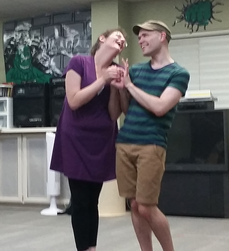
My name is Brandon, and I am, sometimes, an actor. And I'm going to talk about acting.
In general, people who are not actors are often bad at talking about acting. There is nothing wrong with this: I know nothing about cars, so when somebody asks me about my car, I can respond with something like "it drives" or "we don't get along very well," which, while not lies, are also not accurate. Or at least, not precise. And certainly not helpful. So when people who are not actors talk about acting, I usually try to let it slide. Yes, I did memorize all those lines. No, I didn't think about dead puppies during the sad scenes. Thank you for comparing me to that famous movie actor.
But there is something that irks me tremendously, and it's usually said by people who should know better: when talking of a director (or writer) and an actor who work together frequently (usually on films), someone will say, "[specific actor] is [specific director]'s muse."
This is a lie.
The muses are Greek goddesses of the arts, who are typically credited with visiting poets and musicians and providing inspiration. Most often found in a group of nine, they inspire both things that you would expect, like dance and epic poetry, and things you wouldn't, like astronomy. Muses are beautiful, talented, and exist solely to provide artists with the inspiration they need to create great art.
The implication, then, is that an actor is not an artist who receives inspiration, but a vessel for inspiration for artists. An actor must simply exist while a work of art is created around him or her. An actor, then, is the equivalent of a person whose portrait is painted, or the girlfriend mentioned in a song. "I made this for you," they say. For you. Not with you.
The trouble is, that's not what acting is. Actors do not inspire works of art, they help create works of art. Perhaps it's because many people seem to believe that all actors do is learn their lines and do what they're told: an actor gets direction and follows direction, and has no more creative agency than a puppet. And while there are some directors who cultivate those qualities in their actors, in general, that is not what actors are for. Perhaps it is also because our culture finds collaboration difficult, preferring to attribute even a work of art with as many varied contributors as a summer blockbuster (have you stayed for the entire end credits of one of those?) to one author, discrediting the others as mere vessels. The muse concept is especially pernicious with actresses, for sociological reasons that would take another whole article just to start talking about.
At Bare Bones Shakespeare, we reject this notion. When we act, we are not muses who express another person's artistry. We are artists of our own, creating characters and performances that combine with the efforts of other artists to create a larger, richer whole. Every BBS production is built on the idea of collaboration, the hope that a group of artists will meet together and create a work of art in harmony, not be corralled into one man or woman's inflexible unison.
Collaboration is what we do. And if that's something you're interested in, then you're exactly the kind of artist we want to collaborate with. Audition. Donate. Or talk to us. We're listening.
In general, people who are not actors are often bad at talking about acting. There is nothing wrong with this: I know nothing about cars, so when somebody asks me about my car, I can respond with something like "it drives" or "we don't get along very well," which, while not lies, are also not accurate. Or at least, not precise. And certainly not helpful. So when people who are not actors talk about acting, I usually try to let it slide. Yes, I did memorize all those lines. No, I didn't think about dead puppies during the sad scenes. Thank you for comparing me to that famous movie actor.
But there is something that irks me tremendously, and it's usually said by people who should know better: when talking of a director (or writer) and an actor who work together frequently (usually on films), someone will say, "[specific actor] is [specific director]'s muse."
This is a lie.
The muses are Greek goddesses of the arts, who are typically credited with visiting poets and musicians and providing inspiration. Most often found in a group of nine, they inspire both things that you would expect, like dance and epic poetry, and things you wouldn't, like astronomy. Muses are beautiful, talented, and exist solely to provide artists with the inspiration they need to create great art.
The implication, then, is that an actor is not an artist who receives inspiration, but a vessel for inspiration for artists. An actor must simply exist while a work of art is created around him or her. An actor, then, is the equivalent of a person whose portrait is painted, or the girlfriend mentioned in a song. "I made this for you," they say. For you. Not with you.
The trouble is, that's not what acting is. Actors do not inspire works of art, they help create works of art. Perhaps it's because many people seem to believe that all actors do is learn their lines and do what they're told: an actor gets direction and follows direction, and has no more creative agency than a puppet. And while there are some directors who cultivate those qualities in their actors, in general, that is not what actors are for. Perhaps it is also because our culture finds collaboration difficult, preferring to attribute even a work of art with as many varied contributors as a summer blockbuster (have you stayed for the entire end credits of one of those?) to one author, discrediting the others as mere vessels. The muse concept is especially pernicious with actresses, for sociological reasons that would take another whole article just to start talking about.
At Bare Bones Shakespeare, we reject this notion. When we act, we are not muses who express another person's artistry. We are artists of our own, creating characters and performances that combine with the efforts of other artists to create a larger, richer whole. Every BBS production is built on the idea of collaboration, the hope that a group of artists will meet together and create a work of art in harmony, not be corralled into one man or woman's inflexible unison.
Collaboration is what we do. And if that's something you're interested in, then you're exactly the kind of artist we want to collaborate with. Audition. Donate. Or talk to us. We're listening.
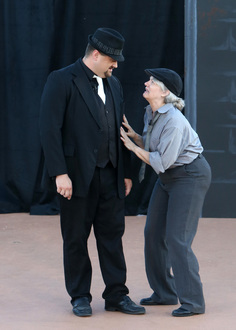
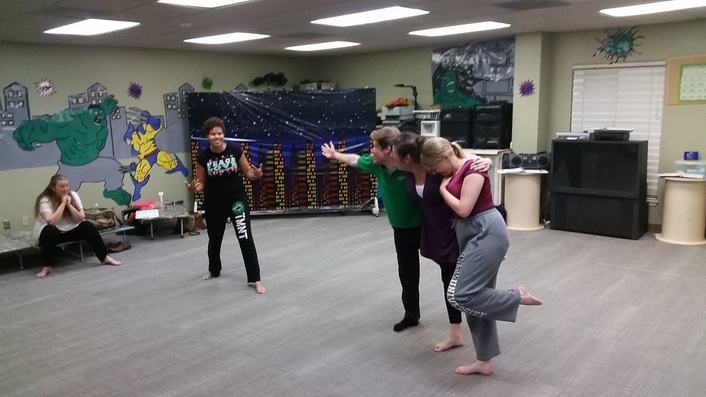
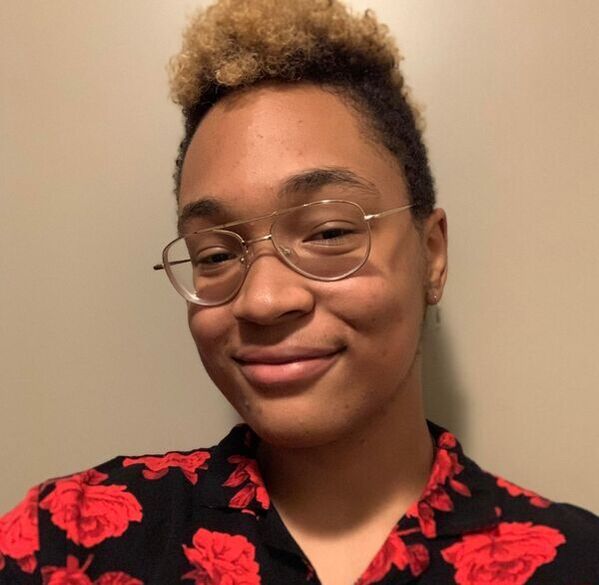
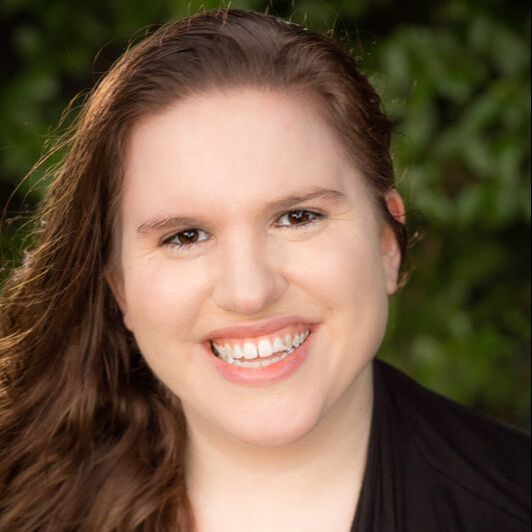

 RSS Feed
RSS Feed